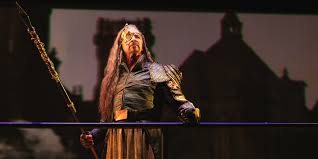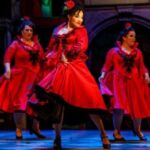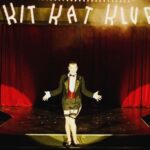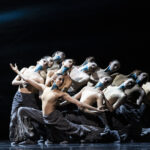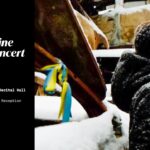Seattle Opera’s opening number of their 60th anniversary season.
The Seattle Opera opened their 60th anniversary season in McCaw Hall on August 12 with an electrifying performance of Das Rheingold by Richard Wagner (1813 – 1883), the first of the four operas comprising his operatic cycle Der Ring des Nibelungen (The Ring of the Nibelung). Despite brief moments of levity in Das Rheingold, the Ring cycle explores the dark consequence of exchanging love for unlimited power to fend off fear. In the end, love prevails, but only after tragic loss and supreme sacrifice.
Das Rheingold is a Vorspiel or “prequel” to the three subsequent Ring cycle operas for which Wagner wrote both the librettos and music. The entire cycle premiered at the Bayreuth Festspielhaus in 1876 and was widely performed both in Germany and the U.S. throughout the rest of the nineteenth and early twentieth century.
Hitler’s adulation of Wagner’s music and Norse mythology led to the unfortunate association of Wagner’s operas with Nazism, so during and following World War II, they were shunned by many opera houses. Yet music critic Alex Ross points out that the Nazi’s adoration of Wagner was superficial; the themes that unite the Ring cycle – critique of power; remorse for errors; and the elevation of compassion – were not Nazi virtues. The Seattle Opera was the first American opera company to perform the cycle in the space of a week since the Metropolitan Opera’s pre-WW II production in 1939. Their most recent Ring production was in August 2013.
Except for the three Rhine maidens who guard the Rhine gold, the characters in the Ring cycle are drawn from Old Norse mythology, or Eddas. The gods of the Eddas are not all-powerful but rather riddled with insecurities, fears, and jealousies that lead to intrigues and battles.
Director Brian Stefanie connects these ancient characters with contemporary culture, setting the story in the distant future, imagining the ring as a symbol of the power that technology offers while it destroys relationships and the earth. The Nibelungen elfin slaves conjure up images of the impoverished children forced to mine cadmium for batteries. The gods are detached from humanity and the earth in the same way that technology can be a barrier to human connection; towards the conclusion of Das Rheingold, Erda, goddess of the earth, somberly warns Wotan of the consequences of his lust for limitless power.
David Murakami’s evocative projections, Mextly Couzin’s nuanced lighting, and Mathew LeFebre’s distinctive costumes create the sense a futuristic yet ancient world. Combined with the consistent strong performances of the singing actors and the well-balanced power of the orchestra, the high-level artistry of this production led to a performance that was both mesmerizing and crackling with suspense.
By placing the orchestra on the stage, Staufenbiel not only opened the orchestra pit area for the Rhine River and the underworld of the Nibelungen slaves, but it underscores Wagner’s view of the orchestra as not just accompaniment but rather as an integral voice. To give the orchestra evocative power, he added new instruments such as the “Wagner Tubas,” creating an aural image of the depths of the Rhine and the underworld of Nibelheim . He also introduced unusual sound effects, such as the hammering of the elfin Nibelungs forging metal in the subterrain mines.
Beginning with Das Rheingold, he departed from traditional arias, recitatives, and choruses and instead unwinds the story with shifting harmonies and textures interwoven with short harmonic and melodic “leitmotifs” that symbolize specific themes and characters. These leitmotifs occur and recur throughout the Ring cycle, sometimes serving as recollections, sometimes as prophecy. For example, the descending leitmotif called “Twilight of the Gods” sounds as Erda issues her stern warning about the curse of the ring that will bring about the demise of the gods in the Ring’s final opera, Twilight of the Gods (Götterdämmerung).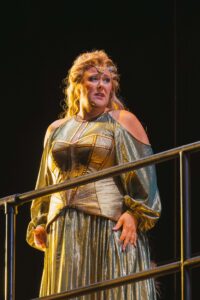
The voices of the seductive, playful Rhine maidens played by Jacqueline Piccolino (Woglinde), Shelley Traverse (Wellgunde), and Sarah Larsen (Flosshilde) sparkled and blended beautifully. Baritone Michael Mayes delivered a strong performance of Alberich, king of the elves, convincingly portraying his desperation, power, and pathos. The clarity and warmth of mezzo-soprano Melody Wilson’s timbre, as well as her graceful aura of strength, perfectly embodied the empathetic Fricka, goddess of family and wife of the formidable Wotan, god of contracts and wars, portrayed with powerful ease and command by well-known Seattle opera veteran Greer Grimsley.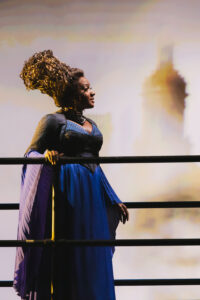
Katie Van Kooten’s pure, golden timbre was fitting for the innocent Freia. Basses Peixin Chen and Kenneth Kellogg were grotesquely imposing as dystopic, lonely sci-fi giants Fasolt and Fafner. Tenor Viktor Antipenko (Froh) was a poignant protector of his sister Freia, with a clear, penetrating lyric tenor, while baritone Michael Chioldi emerges with commanding presence and power as Donner.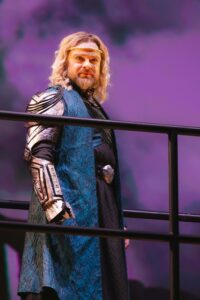
As Mime, tenor Martin Bakari gave an impressive glimpse of his dramatic potential in commanding the same role in Siegfried, the third opera in the cycle. Tenor Frederick Ballentine was stunningly versatile, both as singer and actor, as the wily, fickle demigod of fire, Loge. And finally, the legendary mezzo-soprano Denise Graves was formidably imposing as Erda, goddess of the earth.
The Seattle Opera’s commitment to diversity and sensitivity to the urgent issues of our times was evident in both the staging and casting of this production. While there are no plans for a Seattle production of the complete Ring cycle in the foreseeable future, this production sparks ideas about how the pursuit of unbridled technological progress at the expense of human relationships might be portrayed in the continuing Ring saga – and how the timeless message of this epic cycle can teach us about our own struggles with fear and power.
Das Reingold. Seattle Opera. McCaw Hall, Seattle Center, 305 Harrison, Seattle, 98109, Wed, Fri 7;30 pm. Sun 2pm


